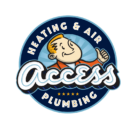Someone who has allergies is in a constant battle to keep the things they love and not have them cause misery. Indoor allergies are particularly vicious, as it’s not like anyone wants to feel terrible in their own home. It also doesn’t help that people will insist that it’s simple to just get rid of the allergens without actually bothering to say how.
It doesn’t have to be expensive to turn around the air quality within a home or to limit the allergens present within it. This is a topic that has received a lot of study and there are plenty of experts out there who agree on some ways for improving indoor allergies. Keep reading to learn about five of them.
Use Good Air Filters
It can be tempting to cut costs by going with a cheaper air filter, but for those with indoor allergies, selecting a quality HEPA (high-efficiency particulate air) filter is a must. This isn’t just for a central air conditioning unit either, but for everything that can use an air filter.
Such uses for an air filter include:
- Central heating and air conditioning
- Single-room air filters
- Vacuum cleaners
This is one of the biggest recommendations from AAFA, the Asthma and Allergy Foundation of America as well as the American College of Allergy, Asthma, and Immunology. A good filter goes a long way in reducing allergens in the home. A good brand for these is 3M, as they have filters specifically designed for allergen reduction that have been certified.
Wash Bedding Regularly
Dust mites are one of the biggest reasons for allergens and they thrive in warm, humid environments. That means they love to live in bedding! Regularly cleaning bedding is another one of the biggest recommendations for cutting down indoor allergy symptoms. The usual recommendation is once a week and to use a dust cover to limit the allergens. Wash them in hot water and be sure to clean all fabric, including the mattress and headboard (if applicable).
Control Humidity
Humidity breeds mold, mildew, and dust mites which will in turn drive up allergies. Even if the home is in a warmer environment, humidity may be the problem. Too dry is nearly as bad as too humid. However, it’s usually too much humidity that causes allergen spikes.
Here are some signs to know if humidity is causing a problem:
- Wet stains on walls
- Moisture on the ceilings
- Rotting wood
- Condensation on windows
- Musty smells
- Mold growth
Dehumidifiers are typically not too expensive but be sure to find one that will be able to handle the amount of space needed to treat. There is also the option to get a permanent dehumidifier installed into a home for a few thousand dollars if necessary.
Sanitize Properly
Cleaning is important, but many often skip the sanitation side of things. Be sure to sweep, vacuum, mop, and dust regularly as applicable. Additionally, sanitize commonly touched surfaces with bleach, Lysol, or another disinfectant. Do not forget windows and doors either, as that is where outdoor allergens and bugs squeak in. Not to mention, they tend to grow mold quickly in these locations.
Select Appropriate Houseplants
Pollen will wreak havoc on allergies, but that doesn’t mean that all plants are a no-go. Plants naturally filter the air, and some are better than others at specific toxins and allergens. Even just one leafy houseplant can help naturally, but it does need to be cared for.
Here are some houseplants that are known to help purify the air:
- Peace Lily
- Dracaena
- Areca Palm
- English Ivy
- Spider Plant
- Golden Pothos
- Heartleaf Philodendron
- Snake Plant
- Rubber Tree
- Dieffenbachia
Most of these plants are relatively easy to care for as well, with varying levels of maintenance required. Not to mention, they help brighten up the place while removing allergens instead of collecting them. Spider plants in particular are good for removing toxins from bathrooms, are cheap, easy to care for, and reproduce easily.
Conclusion
Allergies are terrible, especially if they are inescapable. Thankfully, some good methods have been researched by professionals and proven to help reduce the triggering effects. These include using a high-quality HEPA air filter on anything that uses them, regularly washing bedding, controlling humidity, sanitizing, and keeping around house plants.
